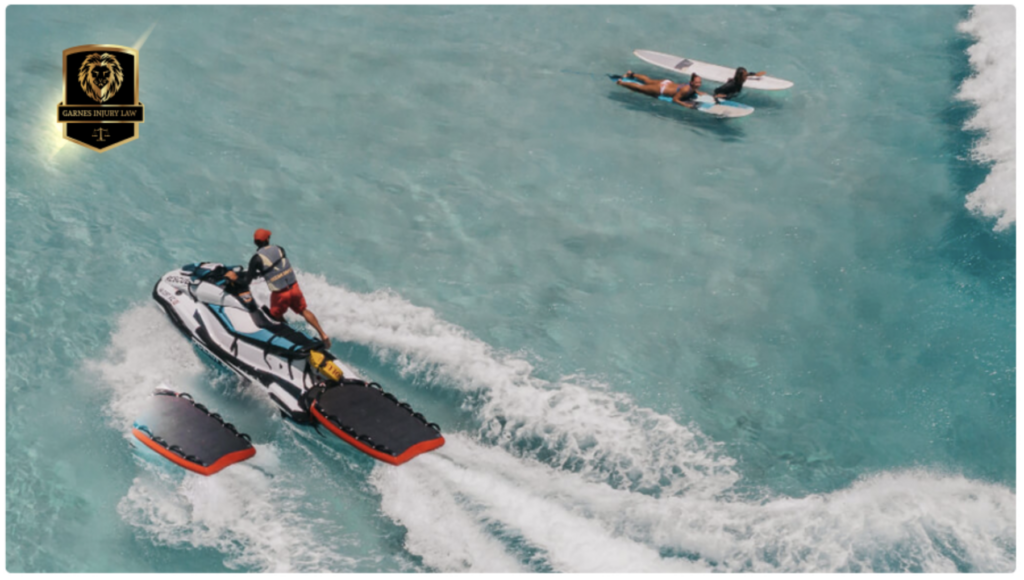Florida Water Skiing
In Florida, there are specific laws governing when and where a water skier can ski, and it’s essential that you know them to avoid any legal complications. In this post, we’ll discuss the legalities of water skiing in Florida, including the age restrictions, equipment requirements, and the specific times and locations when water skiing is allowed. Whether you’re a seasoned water skier or a beginner, this post is a must-read to ensure you adhere to the state’s laws and regulations while enjoying your water skiing experience.

A Water Skier on Florida Waters May Legally Ski During Which Situation?
Before heading out on the waters of Florida for a day of water skiing, it is important to understand the basics of water skiing laws in the state. In Florida, water skiing is a popular activity, and certain laws are in place to ensure the safety of everyone involved.
Safety is a high priority for water skiers, and it’s important to abide by the laws and regulations while out on the waters of Florida. Here we’ll cover what situations a water skier can legally ski in in Florida.
Daytime Only
Water skiing is only permitted during daylight hours in Florida – a half-hour before sunrise to a half-hour past sunset. Any skiing outside this window is considered illegal and carries a hefty fine. Boat lights cannot be used to extend your time on the water beyond the daytime limits.
Four Mile Limit
The legal range for skiing in Florida is within four nautical miles of shore. This means that all skiing must occur near a coastline or island, and journeys further out to sea by boat will need to be done without skis. Water skiing is not allowed in certain areas, such as within 100 feet of a swimmer or 200 feet of a public beach, swimming area, or swimming pool.
Identifiable Ski Areas
When water skiing, designated areas should always be chosen and adhered to. Without identifiable ski areas, you risk crossing the paths of other boats or swimming areas, thus endangering yourself and others. Only ski in the areas labeled as ‘skiing zones’ to prevent any issues or incidents from occurring.
Some areas may have specific rules or regulations regarding water skiing, such as no-wake zones or speed limits. It’s important to be aware of these rules and follow them to avoid legal issues. Certain areas, such as near manatee habitats or environmentally sensitive areas, may be off-limits for water skiing. It’s important to research the area where you plan to water ski and ensure that it’s legal.
If you’re unsure about the legality of water skiing in a particular area, it’s always best to check with local authorities or park rangers. By following the rules and regulations, you can ensure a safe and enjoyable experience on the water.
Safe Practices
All safe boating practices must be observed when water skiing. This includes adhering to speed limits, avoiding sharp turns, and never crowding or blocking other boats. Additionally, skiing alone is never recommended, and two directors should always accompany a skier out on the water to ensure their safety.
Inclement Weather
Water skiing is not permitted when there are thunderstorms or lightning in the area. This is because lightning poses a significant danger to water skiers as the sport requires the skier to contact the water, which conducts electricity. Additionally, it is not permitted to water ski when the visibility is poor due to weather conditions such as fog or rain.
Water Skiing Accident Yesterday
Yesterday in Sunny Isles Beach, tragedy struck when a water skiing accident injured one person. At around 3 pm, a boat rented in Aventura took a group of four on a joy ride through the waters of the Miami-Dade County coastline. While the boat was going full throttle, the skier lost control and crashed into the wake at over thirty-five miles per hour.
Witnesses suspect that no life jackets were being worn during the accident, and emergency services were notified as soon as the incident occurred. The victim, who had been taken to shore and transported to an area hospital, is now stable and expected to recover fully with minor injuries.
The cause of the accident is still unknown, but investigations are underway. With strong winds and choppy waters along the coast yesterday, it’s very likely that weather conditions played a factor. This highlights the need for caution while engaging in any recreational water activity; everyone should ensure they have the necessary safety equipment before venturing out.
Required Safety Equipment for Water Skiers in Florida
Regardless of age, anyone who wants to water ski must always wear a US Coast Guard-approved personal flotation device (PFD). Additionally, anyone operating a motorboat or PWC must have a boating safety education ID card. Those born on or after January 1, 1988, must complete an approved boating safety education course to obtain this ID card.
In addition to the PFD, water skiers in Florida must have a water ski flag. This flag must be at least 12 inches by 12 inches in size with a vivid red or orange color. The flag signals to other boaters that a water skier is in the water and to keep a safe distance.
Lastly, water skiers in Florida must also have a mirror or observer on board the towing vessel. This ensures that the skier can be monitored at all times and that potential dangers can be identified and addressed quickly.
Age Requirements for Florida Water Skiing
Florida has specific age requirements for those who want to water ski legally. The minimum age for a person to legally operate a personal watercraft (PWC) or a motorboat of more than ten horsepower is 14. However, the minimum age for water skiing is only seven years old. Anyone seven years or older can legally water ski on Florida’s waters.
Signaling Devices for Water Skiers in Florida
Having the proper signaling devices is crucial. According to Florida law, every water skier must have a signaling device that is easily accessible and ready to use at all times. This is important for safety reasons, as other boaters need to be aware of water skiers in the area.
A few different types of signaling devices are acceptable under Florida law. These include a whistle, a horn, or a flag that is at least 12 inches by 12 inches in size and is bright orange or red in color. The signaling device must be heard or seen from a distance of at least one mile.
It’s important for water skiers to have the signaling device with them and know how to use it properly. In an emergency or if the water skier falls into the water, the signaling device can alert nearby boaters and signal for help if necessary. Additionally, water skiers should never rely solely on visual signals, such as hand signals, as these can be difficult to see from a distance or in certain lighting conditions.
Rules for operating a boat while towing a water skier in Florida
As an avid water skier, knowing the rules for operating a boat while towing a skier in Florida is important. In Florida, it’s illegal to operate a boat under the influence of alcohol or drugs or to allow someone else to operate your boat under these conditions. When towing a water skier, there are specific rules to follow.
- The boat operator must have someone else on board who is at least six years of age and can always observe the skier. The boat must also display a flag that is at least 12 inches by 12 inches and is orange or red in color.
- The boat operator is responsible for the skier’s safety. This means that the skier must wear a personal flotation device at all times, and the boat must not exceed a speed of 30 miles per hour when towing a skier.
- The boat must not operate within 100 feet of any anchored or moored vessel, shoreline, or swimming area marked by buoys or any person in the water, not the skier being towed.
Penalties and fines for violating water skiing laws in Florida
In Florida, violating water skiing laws can result in serious penalties and fines. These penalties and fines can vary depending on the severity of the violation and the number of times the individual has violated the law. For example, if an individual is found skiing in a prohibited area for the first time, they may receive a warning or a minor fine. However, suppose the individual is skiing in a prohibited area for the third time. In that case, they may face a more substantial fine or have their water skiing privileges suspended or revoked.
Additionally, individuals who operate a vessel while under the influence of drugs or alcohol can face severe fines and even imprisonment. The legal limit for blood alcohol content (BAC) for boaters in Florida is 0.08%, the same as the limit for drivers. Boaters with a BAC above the legal limit can be fined, lose their boating privileges, and even face jail time.
Here are some tips to ensure your water skiing adventure in Florida is both enjoyable and legal:
- Always wear a life jacket: It is mandatory to wear a U.S. Coast Guard-approved life jacket while water skiing in Florida. This applies to all participants, including the skier, the boat driver, and any spotter.
- Follow the speed limits: In Florida, specific speed limits for water skiing are based on the location and type of waterway. Make sure to follow these speed limits to avoid any legal issues and stay safe.
- Know the rules and regulations: It is important to know the rules and regulations of the waterway you will be skiing on. For example, some areas may have designated water skiing zones, while others may prohibit water skiing altogether.
- Use hand signals: Establish hand signals with the boat driver before starting your water skiing adventure. This helps to ensure clear communication and avoid any accidents.
- Stay aware of other boats and hazards: Always watch for other boats and any hazards in the waterway, such as rocks or debris. Stay alert and ready to take evasive action if necessary.
Compensation for Water Skiing Accident Injuries
You may be entitled to compensation if you or a loved one has been seriously injured in a water skiing accident due to another person’s negligence. Read on to learn more about your rights and how to seek justice after an injury.
Understanding Negligence Laws in Florida
Under Florida law, individuals have a duty of care to others when participating in activities like water skiing that could cause harm if proper precautions are not taken. When someone fails to take reasonable measures to avoid injuring someone else, they may be liable for damages.
Pursuing Compensation After An Injury
You may be eligible for compensation if you have suffered injuries due to another person’s negligence while water skiing in Florida. This includes payment for medical expenses incurred due to your injury, lost wages due to time missed from work, and even pain and suffering damages.
Consulting With A Personal Injury Attorney
If you are seeking compensation after a water skiing accident, consult a jet ski accident lawyer. An experienced attorney can help assess your case and provide advice on the best way to proceed to get the most favorable outcome.
At the end of the day, no amount of money can undo the damage caused by a water skiing accident. However, properly compensated for your losses can help alleviate some of the financial burdens of your injury, so don’t hesitate to explore your legal options.






